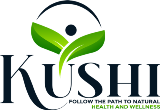

Herbal Supplements and Natural Remedies vs Western Medicine
In an era where healthcare choices abound, understanding the nuances between herbal supplements, natural remedies, and western medicine is crucial. This article aims to explore the landscape of healthcare options, shedding light on the definition, history, and uses of herbal supplements, comparing them with synthetic drugs, and ultimately examining the role of herbal medicine and natural remedies in contemporary wellness practices. This exploration will provide clarity for individuals seeking to make informed decisions about their health and well-being.
Understanding Herbal Supplements

Definition and History of Herbal Remedies
Herbal remedies are plant-derived substances used to maintain or restore health. The history of herbal medicine stretches back thousands of years, with evidence of use in ancient civilizations like China, Egypt, and Greece. Traditional Chinese medicine, for example, is one of the oldest systems of medicine, and it heavily relies on herbal products to promote wellness and balance. These traditional systems of medicine laid the groundwork for what we know today as herbal supplements, highlighting the deep-rooted connection between nature and human health, even with the side effects of synthetic drugs.
Common Herbal Supplements and Their Uses
Several herbal supplements are widely used for various health conditions. For example, St. John’s Wort is often used to treat symptoms of depression. Herbal products can range from single herbs to complex formulas, each with specific uses. These natural medicines are available in various forms, including capsules, tablets, teas, and tinctures. Before taking any herbal supplement, it is important to consult a healthcare professional, especially if you are already taking conventional medicine or pharmaceutical drugs. Supplements may interact with other medicines.
Herbal versus Synthe0tic Drugs: A Comparative Overview
The difference between herbal and synthetic drugs lies primarily in their composition and method of action. Here’s a comparison:
| Characteristic | Herbal Drugs | Synthetic Drugs |
|---|---|---|
| Composition | Derived from plants; complex mixture of compounds | Created in a laboratory; usually a single, purified substance |
| Target | Multiple pathways in the body | A specific mechanism |
Herbal medicines have a long history of use, but they are not always as rigorously tested as pharmaceutical drugs in clinical trials. Western medicine relies heavily on synthetic drugs.
Western Medicine: Principles and Practic

Overview of Conventional Medicine
Western medicine, also known as conventional medicine, is a system of healthcare that emphasizes the use of pharmaceutical drugs, surgery, and other interventions to treat diseases and health conditions. This approach relies heavily on scientific evidence and clinical trials to validate treatments, often focusing on specific symptoms or diseases. Unlike traditional Chinese medicine or herbal therapy, which is a holistic therapy, western medicine tends to prioritize targeted interventions using synthetic drugs, aiming for quick and measurable results. It’s a dominant form of healthcare in many parts of the world.
The Role of Synthetic Drugs in Treatment
Synthetic drugs play a crucial role in western medicine, serving as the primary means to address various ailments. These pharmaceutical drugs are created in laboratories to mimic or modify natural substances, with the goal of producing specific therapeutic effects. Western medicine places great emphasis on the precision and control offered by synthetic drugs, which allows for targeted treatment of specific diseases. Although herbal medicines and natural medicines are also used, synthetic drugs remain the cornerstone of many treatment plans in the field of conventional medicine.
Western Medicine vs Eastern Medicine: Key Differences
The contrast between western and eastern medicine highlights fundamental differences in their approaches to healthcare. Key differences are summarized below:
| Aspect | Western Medicine | Eastern Medicine |
|---|---|---|
| Focus | Diagnosing and treating diseases with pharmaceutical drugs | Holistic approaches, balancing the body’s energy and promoting overall well-being. |
While western medicine relies on clinical trials and scientific data, eastern approaches incorporate natural medicines, plant remedies and acupuncture, and accumulated historical experiences.
Complementary and Alternative Medicine Approaches
Integrating Herbal Remedies with Conventional Treatments
Integrating herbal remedies with conventional treatments involves combining herbal supplements and natural products with standard medical practices. This approach seeks to harness the benefits of both western medicine and herbal medicine, potentially leading to more comprehensive and personalized care. Patients should consult with healthcare providers to ensure that supplements do not interfere with pharmaceutical drugs or treatments prescribed by western medicine. This integration, often part of complementary medicine, can enhance the overall effectiveness of therapy and promote better health outcomes.
Benefits of Using Herbal Supplements Alongside Western Medicine
Using herbal supplements alongside western medicine can offer several benefits, potentially enhancing treatment outcomes and improving overall well-being. Herbal therapy is a holistic therapy, and herbal medicines might help in alleviating side effects of synthetic drugs, boosting the immune system, and promoting relaxation. Complementary medicine uses both supplements and prescribed treatments to improve a patient’s quality of life. It’s essential to approach this integration cautiously, ensuring that herbal supplements do not interact negatively with pharmaceutical drugs or other treatments from western medicine.
Challenges and Considerations in Herbal versus Synthetic Approaches
In the comparison of herbal versus synthetic approaches, several challenges and considerations arise. Patients must carefully weigh the potential benefits and risks of each approach, considering their individual health conditions and consulting with healthcare professionals.
| Approach | Considerations |
|---|---|
| Herbal Supplements | May not undergo the same rigorous testing as pharmaceutical drugs. |
| Synthetic Drugs | May have more pronounced side effects, although precisely formulated. |
Making Informed Choices: Herbal vs Western Medicine

Evaluating Effectiveness: How to Use Herbal Remedies Safely
Evaluating the effectiveness of herbal remedies and using them safely requires careful consideration. While herbal medicine has a long history, it’s crucial to approach it with a discerning eye, understanding that supplements may interact with pharmaceutical drugs. Look for herbal products that have undergone testing for purity and potency. Always start with a low dose to assess tolerance, and be mindful of potential side effects of synthetic drugs and herbal versus synthetic interactions. Consulting a healthcare provider before taking any herbal remedies is essential for your health conditions.
Consulting Healthcare Providers on Herbal Supplement Use
Speaking with a medical professional about herbal supplement use is a critical step in ensuring safe and effective healthcare. Share a comprehensive list of all supplements you are taking, including dietary supplements, herbal products, and traditional Chinese medicine. Healthcare providers can help assess potential interactions between herbal supplements and pharmaceutical drugs, as well as evaluate the suitability of herbal remedies for your specific health conditions. Open communication ensures your western medicine and any complementary medicine work together safely, maximizing the benefits while minimizing risks.
Future Trends in Herbal and Western Medicine Integration
The future will likely bring more integration of herbal and western medicine. Evidence-based approaches will become more important. Clinical trials will be key to proving the effectiveness of herbal supplements. These studies will also show how herbs can best support conventional care. More healthcare providers will learn about both systems. This will help them offer more personalized and complete treatment. Herbal therapy, as a holistic therapy, will become part of mainstream care. This shift will create a more balanced approach to health, blending the best of both traditions.
Why Herbal Supplements and Natural Remedies are Better?
The question of why herbal supplements and natural remedies are better than conventional medicine is complex. It depends on personal needs and circumstances. Herbal remedies often appeal to those who want a more holistic approach. Some people simply prefer natural products. These medicines have been used for centuries. However, it’s important to understand that herbal supplements do not always go through the same strict testing as synthetic drugs.
Related Posts
Want to learn more?
Visit one of our 3 locations
Our staff is here to help! Looking for a specific herb or supplement? We got you covered. Need help finding a remedy for a problem you Have? No problem!
Stop on by and see for yourself why Kushi Health & Wellness is one of the top Natural Health Stores in the Carolinas.


